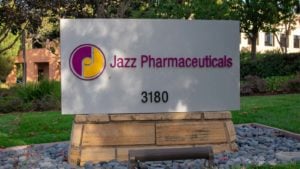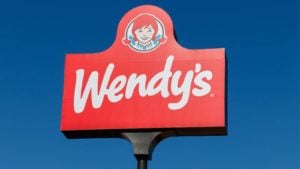Let’s call a spade a spade. The market is a bit hard to grasp these days. On the one hand, the economy isn’t crashing, data isn’t particularly bad, consumers are spending and we just recently got a nice present from the Federal Reserve. However, the data is slowing and the recession signs are starting to make themselves known. We have this weird environment. Investors can and need to find growth but still need some margin of safety to help fight the volatility.
That’s why investors should get to know GARP stocks.
GARP stands for “growth at a reasonable price” and was popularized by legendary Fidelity manager Peter Lynch. It’s basically the intersection of traditional value and growth-style investing. With GARP stocks investors are looking to find those firms that have plenty of oomph behind them but aren’t paying too much to own that growth.
The way to measure GARP stocks is through the often-ignored price/earnings-to-growth or PEG ratio. According to Lynch, a fairly valued company will support a PEG ratio of 1. When a company’s PEG is over 1, it’s overvalued. For GARP stocks, we’re looking at PEG ratios of less than 1. It’s here that a firm is considered undervalued based on its growth.
With the current environment, here are five GARP stocks that offer plenty of growth with a high margin of safety.
GARP Stocks to Buy: Amazon (AMZN)

PEG Ratio: 0.91
We all know that e-commerce giant Amazon (NASDAQ:AMZN) is a growth play. The firm continues to move into new markets, change old ones and dominate across a variety of playing fields. But what’s a little crazy is that AMZN stock is actually cheap. With a PEG of 0.91, investors aren’t paying too much for all of Amazon’s potential.
And what growth potential there is.
Amazon has a lot of levers to pull. From higher-margin private brands to its success in digital advertising, the firm has a lot of growth behind it. Right now, analysts estimate that AMZN will pull in a whopping $332 billion in revenue next year and make around $33 per share in profits. That’s a nearly 19% jump in sales and a 43% year-over-year increase in earnings per share. That’s some torrid growth for a firm the size of AMZN.
More importantly, the future still looks rosy for Amazon. Most businesses continue to migrate to Amazon Web Services, while the firm has been making waves in some businesses. AMZN’s forays into healthcare are just starting — with its buyout of PillPack — and there are rumors starting to swirl that Amazon may even get into retail banking. The point is, Amazon continues to find ways to drive revenue and profit growth faster than its rivals.
And yet, investors aren’t paying too much for that growth. This makes AMZN an amazing GARP stock to buy.
Marathon Oil (MRO)

PEG Ratio: 0.36
Thanks to the threat of a slowing economy, lower Chinese demand and overall “meh” conditions, the energy sector hasn’t exactly been a bright spot in the market. That could make energy companies huge bargains — especially when it comes to GARP stocks. A prime choice could be Marathon Oil (NYSE:MRO).
MRO stock has had a few ups and downs over its history — including spinning off its refining assets at the wrong time and suffering under the weight of lower oil prices during the last crash. But those downs turned out to be a big learning opportunity for the energy firm. Marathon has cut costs, moved its operations to solely focus on the cheap shale formations and paid down its hefty debt load.
All of this is helping it move through the current oil price malaise. In fact, MRO reported one heck of a quarter that beat analyst projections by a wide margin. Free cash flows post dividends clocked in at $137 million, while the firm’s debt reduction has paid off and moved into the investment-grade category. Meanwhile, Marathon was able to return plenty of cash to its shareholders — buying back $250 million worth of stock of year-to-date and handing back $82 million for dividend payments.
But because of the recent tension in the energy sector, traders are pricing MRO as if it’ll never grow again. Currently, shares can be had for a rock-bottom PEG of 0.36. At the same time, it has a trailing price-to-earnings ratio of less than 10. So, investors are paying nothing for its current earnings either.
With those low numbers, MRO could be the ultimate pick among GARP stocks.
Jazz Pharmaceuticals (JAZZ)

PEG Ratio: 0.75
It’s no secret that the biotech sector is full of high-growth firms. But it is rare to find one trading at such bargain-basement prices for that growth. One of the biggest bargains in the sector could be Jazz Pharmaceuticals (NASDAQ:JAZZ).
JAZZ has not one, but five drugs on the market. This includes blockbuster narcolepsy drug Xyrem. Sales of the drug continue to surge with revenues for it jumping 16% year-over-year to hit $413.2 million during the last-reported quarter. Solid sales growth for its drug Defitelio and acute myeloid leukemia drug Vyxeos helped the biotech firm realize an overall 14% year-over-year gain in revenue and a nearly 17% increase in earnings.
That’s some impressive growth and yet, investors could care less. Today, JAZZ can be had for a PEG of 0.75.
The reason is two-fold. For starters, sales of its blood cancer drug Erwinaze have continued to tank. Thanks to continued manufacturing issues, sales of the oncology medicine fell 53% year-over-year. That’s terrible news as the drug was seen a big future buster for JAZZ. Secondly, Jazz Pharmaceuticals has long been rumored to be a buyout candidate. However, rather than get swallowed, the firm has gone on a shopping spree of its own and recently purchased a cancer program from Redx Pharma as well as private clinical-stage biotech company Cavion. Not only did that remove the mergers and acquisitions target thesis, but it also upped JAZZ’s debt by a bit. With that, share price growth has stalled.
But this could be a great opportunity to load up on JAZZ shares. Already, the firm has scored another drug approval and features a great pipeline full of potential new drugs. Meanwhile, Jazz continues to make plenty of cash and has begun to buy back stock in droves. Some analysts even believe a dividend could be on the way.
And yet, shares are trading well below that growth potential.
Wendy’s (WEN)

PEG Ratio: 0.8
The burger wars continue to heat-up and Wendy’s (NASDAQ:WEN) is winning. And no we aren’t talking about their social media team. WEN continues to drive traffic and sales in a big way. During the last quarter revenue rose 7.4% year-over-year to $408.6 million, while earnings jumped 27% to $0.14 per share. Both results were way ahead of the estimates.
The reason comes down to its ambitious plans for growth. After stumbling a few years ago, the fast-food giant unveiled a new plan to boost sales and profitability. This included changing its menu to drive growth as well as enhancing the customer experience through digital channels and delivery. Well, it’s working big time. Small changes like reconfiguring its famous value deals and adding 50 cent Frosty’s has a dramatic effect on profitability and average check size. Wendy’s now features some of the best margins in the business.
And there’s plenty of room to grow further. The next step in Wendy’s plan is to expand it partnership with DoorDash for delivery. Right now, the adoption of delivery options for WEN is low, but management has plans to boost this through the integration of mobile ordering in its app. Moreover, margins could rise further as it adds more digital kiosks inside its restaurants.
The best part is that WEN’s hefty growth, free cash flows and dividend are going for cheap. Right now you score Wendy’s stock for a PEG of just 0.8.
JetBlue Airways (JBLU)

PEG Ratio: 0.55
The airlines have long been some of the worst performers in terms of the market. However, all of that changed back in 2014 when oil prices crashed and stayed low. Because of this, the top dogs got even better and that includes budget firm JetBlue Airways (NASDAQ:JBLU).
After a recent setback, JBLU started to regain its mojo. For its latest reported quarter, the airline managed to see profits of 59 cents per share. This compares to a loss in the similar period a year ago. It also shows that JetBlue’s plans are starting to work. Thanks to cost-cutting programs, JBLU has managed to see its margins creep up closer to carriers with higher costs per flight.
But the best growth could be ahead. Much of JBLU’s price improvement and cost-cutting programs will make serious hay by 2020. The airline expects to be able to reduce costs by $250 million to $300 million annually by the end of next year. Meanwhile, the firm is looking at its routes and reallocating capacity. Underperforming routes are being dropped while applying that capacity to its best markets. At the same time, JBLU s exploring longer — read higher margin — routes and destinations for its portfolio. The addition of its latest next-generation fare platform will also help. These two pieces of the puzzle should help JBLU score an additional $295 million in revenues according to management.
Already, JBLU is starting to see some real growth from its operations, but more could be ahead. And the best part is that investors aren’t paying too much for the growth today. With a PEG of just 0.55, JBLU is living up to its discount airline name and makes a great GARP stock to buy.
At the time of writing, Aaron Levitt held a long position in AMZN stock
